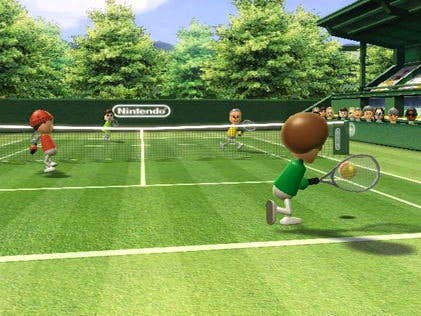Where Wii's At
Taking stock of the Revolution.
Last month, Satoru Iwata admitted as much in a Financial Results Briefing: "We had continuous growth in the number of Wii users, but we are now seeing a downward turn. In other words, we are not making a situation where users are continuing to play after their first experience. This is a big challenge we are facing."
Or to put it another way, the Wii is entering its closing stages in an absolute rut – the supply of first-party and third-party games, which was always somewhat constricted, is now barely a trickle, with only Zelda on the horizon. Here are the highlights of the next few months' software: Transformers: Dark of the Moon, Get Fit with Mel B, LEGO Pirates of the Caribbean: The Video Game, Cars 2: The Video Game, Karaoke Revolution Glee: Volume 2, ExerBeat, Wii Play: Motion, Green Lantern: Rise of the Manhunters. Three movie tie-ins, a fitness game, a singing game, a Nintendo minigame collection and a Lego game. Just to emphasise: the highlights.
The most fascinating thing about Wii is how conservative its software market has become. Everyone knows what works: minigames, dancing, fitness workouts and board games. The greatest months for innovation were, in fact, the very first: titles like Wii Sports, Elebits and the criminally underrated WarioWare: Smooth Moves. Wii Sports' intuitive interface and laser-like focus on getting players into the game and playing (so little clutter) makes Sports Resort and the banal Wuhu Island look a little clumsy.
With Elebits and Smooth Moves, it was a case of ideas that would've been impossible without the Wii remote: in the former, a game about pointing, shaking and making a mess; in the latter a hundred surreal takes on what the remote could represent. They should have been the vanguard.

Instead, the Wii remote has come to seem almost incidental in its best games (Galaxy springs to mind), and the disappointment isn't to do with the surfeit of party games and lack of multiplatform ports: it's that the Wii's software rarely innovated beyond the obvious. Sports and fitness games are all well and good, but the interface never developed beyond curios like Let's Tap, while Nintendo's most recent games are either decent but traditional 2D platformers like DKCR and Kirby's Epic Yarn or forgettable fare like Mario Sports Mix.
Sony's corporate barbs for Nintendo always laser in on the childlike aspect of Nintendo's products, which is from another angle their greatest strength. It's the idea that encapsulates Wii: complexity and depth is less important than fun.
The simple brilliance of that led to some kind of revolution. And here we are: the Wii will toddle onwards, selling many more millions over many more years. It's a classic console with some unforgettable games. But it's also one where the majority of upcoming software is either simplistic or blandly mainstream, a console that retains its core appeal but has never grown beyond it.
In the heady days of its launch, Wii promised a new way to play, a new experience. Four years down the line, it's run out of steam badly, and Nintendo's attention is clearly elsewhere. The success story of this console generation has turned out to have the most boring ongoing narrative. It was a gimmick, in the end, as surely as the Ultra Hand. But wasn't it a magnificent one?
